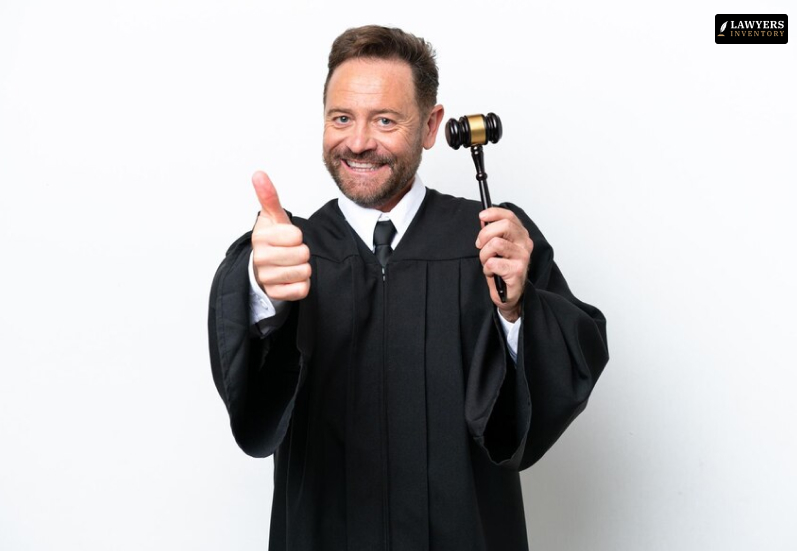
Do you need expert guidance to navigate the intricacies of tax law, corporate law, and accounting? If so, you may need a CPA lawyer.
A CPA lawyer is a unique professional who combines the expertise of a certified public accountant (CPA) with a lawyer’s knowledge. They can help you make informed decisions, avoid costly mistakes, and achieve financial goals.
In this article, I will explore when you need a CPA lawyer and how to become one. I will break down the steps to become a CPA lawyer, from earning a bachelor’s degree to maintaining certification and licensure.
Whether you’re seeking guidance or a new career path, this article will provide valuable insights into the world of CPA lawyers.
So, keep reading this blog till the end…
Understanding CPA Lawyer

Have you ever thought about the definition of a CPA lawyer? Do you think it sounds like a superhero? Let’s break it down, then. A Certified Public Accountant is a CPA; a lawyer is a legal professional.
CPAs are financial experts who possess a deep understanding of economic laws, accounting, and taxes. They support both individual and corporate financial management.
Lawyers, on the other hand, are experts in the field and possess a vast understanding of it. They protect their clients’ interests and rights.
So what happens if you bring these two areas of knowledge together? You have a CPA attorney!
They efficiently handle legal and financial obstacles, much like a dynamic pair. Their combined knowledge of law and accountancy makes them a formidable force. They can also assist with tax laws, family law, financial planning, and legal issues.
What Does a CPA Lawyer Do?

A CPA lawyer is a special kind of professional who practices law and accounting. They are an invaluable asset to both individuals and businesses because they have a thorough understanding of both financial issues and legal principles.
A CPA lawyer can offer the following accounting services:
- Budgeting and financial planning
- Planning and preparation for taxes
- Preparation of financial statements and auditing
- Consulting and financial analysis
From a legal perspective, a CPA lawyer can help with:
- Establishment and Organization of Businesses
- Examining and negotiating contracts
- Assistance with and representation in litigation
- Probate and estate planning
What sets CPA lawyers apart is their ability to navigate the intersection of finance and law. They can help clients with complex issues like:
- Tax disputes and controversies
- Financial regulatory compliance
- Business transactions and mergers
- Asset protection and preservation
CPA lawyers often work with clients in finance, real estate, and healthcare, where financial and legal expertise is crucial. They may also serve as expert witnesses in court cases involving financial matters.
A CPA lawyer provides a one-stop shop for clients seeking financial guidance and legal representation.
Why Choose a CPA Lawyer?
It would help if you had a CPA lawyer when financial and legal expertise is crucial. Here are some scenarios:
- Complex tax issues: If you need assistance with tax planning or are dealing with tax disputes and audits, a CPA lawyer can offer knowledgeable advice.
- Business transactions: A CPA lawyer can assist with contract evaluation, negotiation, and due diligence when purchasing or selling a firm.
- Financial litigation: A CPA attorney can act as an expert witness or offer litigation support if you’re a party to an economic issue lawsuit.
- Estate planning: To ensure that your assets are safeguarded and dispersed by your intentions, a CPA lawyer can assist with estate planning, which includes wills, trusts, and probate.
It would be best if you chose a CPA lawyer because they offer unique skills and benefits.
It is highly beneficial to be knowledgeable in two areas. Due to their knowledge of both law and accounting, CPA attorneys are one-stop shops for their clients.
These professionals will handle your legal and financial matters more efficiently and quickly if you work with a single expert.
Hiring a CPA lawyer is not expensive. Instead of hiring multiple attorneys and accountants, you can get comprehensive services from a single expert. This could also lead to significant savings and a reduction in administrative labor.
Having effective communication is an extra benefit. CPA lawyers make sure you understand the issues and how to resolve them by deciphering technical financial and legal jargon.
This clarity may also help you feel less stressed and enable you to make sensible decisions. Not to mention, CPA attorneys approach problem-solving from all angles.
Additionally, they offer comprehensive solutions that take into account all relevant factors, including potential financial and legal repercussions. This means that you will receive thorough guidance customized to your needs.
Is Becoming a CPA Lawyer a Good Career?
Becoming a CPA lawyer can be a fulfilling career for those who enjoy problem-solving, are detail-oriented, and can manage stress. The right mindset and dedication can lead to a rewarding and successful profession.
Here are some of the reasons why being a CPA Lawyer can be an excellent career for you:
- High demand: First, there is a growing need for people with legal and accounting knowledge due to the complexity of financial rules and tax laws. This entails prospects for advancement and employment security.
- Range of roles: Second, CPA attorneys are employable in various contexts and businesses, including corporate, government, private practice, and public accounting. This permits adaptability and the investigation of many fields.
- Competitive pay scale: Thirdly, depending on experience and geography, the median salary for CPA attorneys ranges from $150,000 to over $250,000.
- Prospects for growth and development: Fourth, CPA attorneys can launch their practices, assume leadership positions, and testify as experts with expertise.
- Individual contentment: Last but not least, CPA attorneys greatly influence their customers’ lives by guiding them through challenging legal and financial situations.
However, there are certain things that you must also keep in mind. They are:
- Education and certification: A legal degree, CPA certification, and continual professional development are necessary to become a CPA lawyer.
- High-stress levels: CPA lawyers frequently handle complex financial and legal difficulties in high-stakes, demanding cases.
Continuous learning: Since the legal and accounting industries are always changing, CPA lawyers must stay current on new rules, laws, and technological advancements.
How to Become a CPA Lawyer?

Have you ever dreamed of becoming a CPA lawyer? You see, the journey is challenging, but the rewards are immense. To become a CPA lawyer, there are a few things that one needs to do:
Getting a bachelor’s degree in accounting, finance, or a similar discipline is the first step toward becoming a CPA lawyer. Make sure you enroll in business law, taxation, and accounting courses.
Next, graduate with a Juris Doctor (JD) from a legal school recognized by the American Bar Association (ABA). Emphasize commercial, corporate, and tax law courses.
Pass the bar exam in the state where you intend to practice law after graduating. States have different requirements, so be careful to confirm the details.
To become a certified public accountant (CPA), you must pass the Uniform CPA Examination, fulfill continuing professional education (CPE) requirements, and meet the requirements of your state’s accounting board.
Experience in tax law, business law, and accounting can be gained by working as an intern or interning at a legal company or accounting firm.
Although unnecessary, you might consider obtaining a Master of Laws (LLM) in Taxation to expand your knowledge.
Lastly, to keep your certification and license current, fulfill the CPA certification’s continuing education requirements and the law license’s state bar association requirements.
The Salary of a CPA Lawyer
The salary of a CPA lawyer can vary based on factors such as location, industry, experience, and specific job roles. However, here are some general salary ranges:
- Entry-level CPA lawyers (0-5 years of experience): $100,000 – $150,000 per year
- Mid-level CPA lawyers (5-10 years of experience): $150,000 – $250,000 per year
- Senior-level CPA lawyers (10-20 years of experience): $250,000 – $500,000 per year
- Partner or owner of a firm: $500,000 – $1 million per year
Over the years, the salary structure for CPA lawyers has changed due to various factors such as:
- Increased demand for specialized services: As businesses look for professionals who can navigate complex financial and legal laws, salaries have gone up.
- Industry shifts: Changes in the healthcare, technology, and finance sectors have brought new opportunities and increased pay for CPA lawyers.
- Geographical location: Wages differ by region, with metropolitan areas typically paying more than rural ones.
- Experience and specialization: As CPA lawyers develop their expertise and focus on fields that are in high demand, their pay rises.
The Bureau of Labor Statistics projects that between 2020 and 2030, jobs for lawyers will increase by 6%, while jobs for accountants and auditors will increase by 7%. This expansion and the rising need for specialist services will probably lead to future pay raises for CPA attorneys.
Conclusion
In conclusion, a CPA lawyer is a valued specialist with a background in both law and accounting. They guide people and companies through challenging legal and financial situations.
A CPA lawyer can significantly assist if you’re involved in commercial transactions, tax disputes, or financial litigation. They offer direction and encouragement to assist you in making wise decisions. You must be committed and diligent if you want to practice CPA law.
Additionally, it would help if you had a strong interest in law and accountancy. You can succeed in this fascinating and in-demand area by taking the proper measures. CPA attorneys are in greater demand because of their unique combination of two areas of expertise.
Remember that CPAs can significantly impact people’s lives and businesses if you consider becoming or hiring one.
Read Also:
- The Best Banking Law Firms In The United States
- How To Choose An Experienced Immigration Attorney
- Law Firms: Embracing Technology For Enhanced Efficiency











0 Reply
No comments yet.